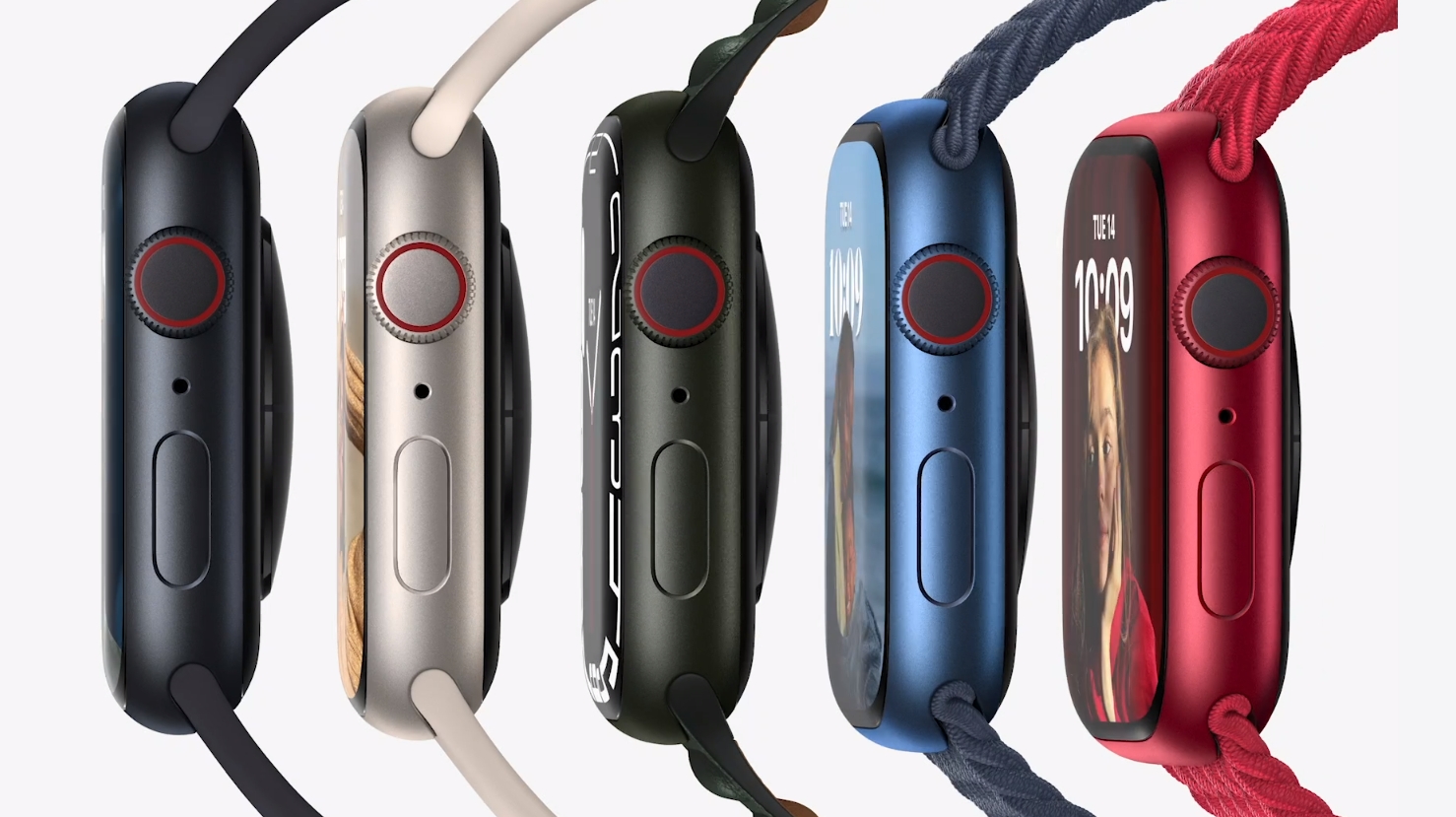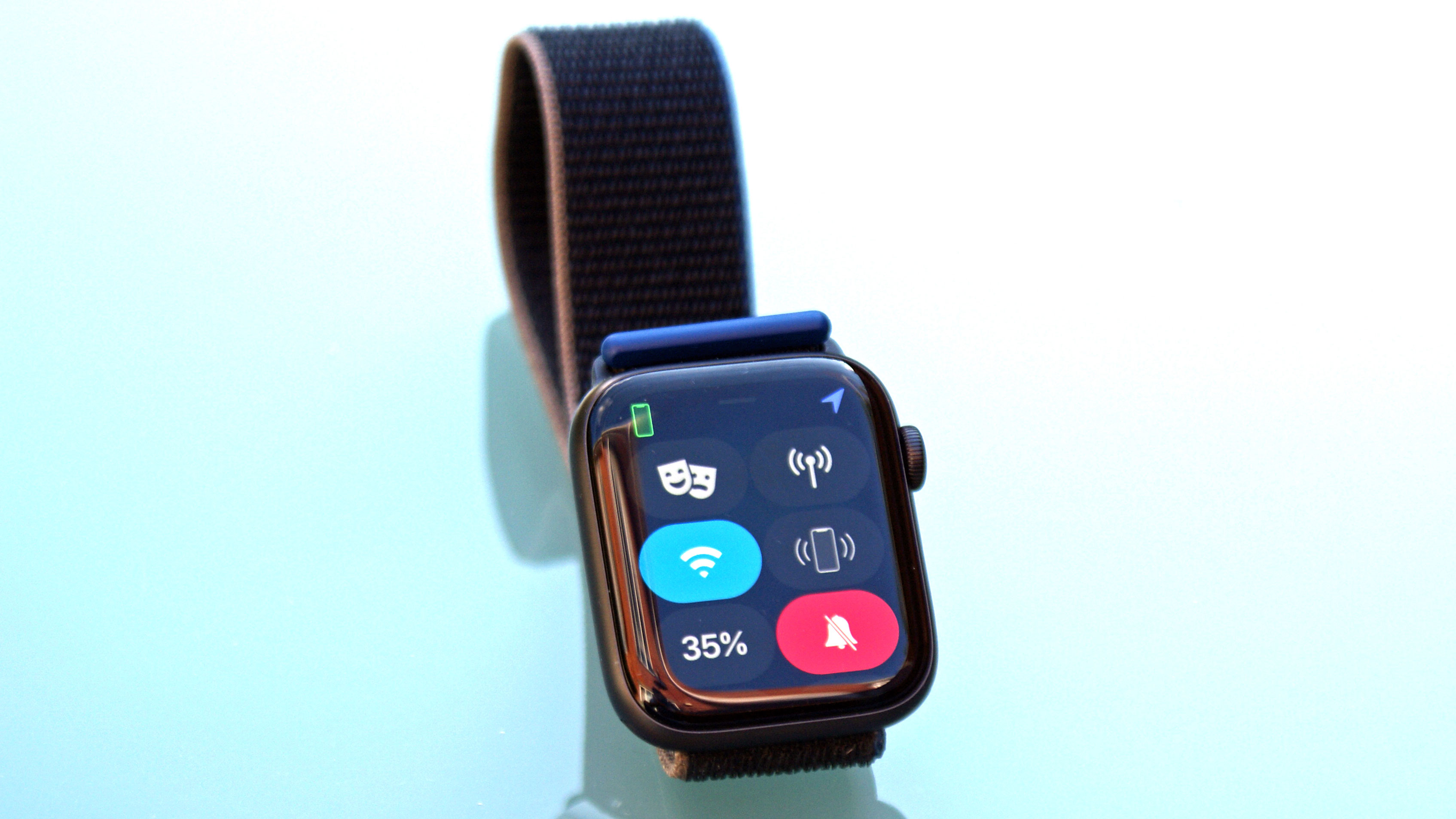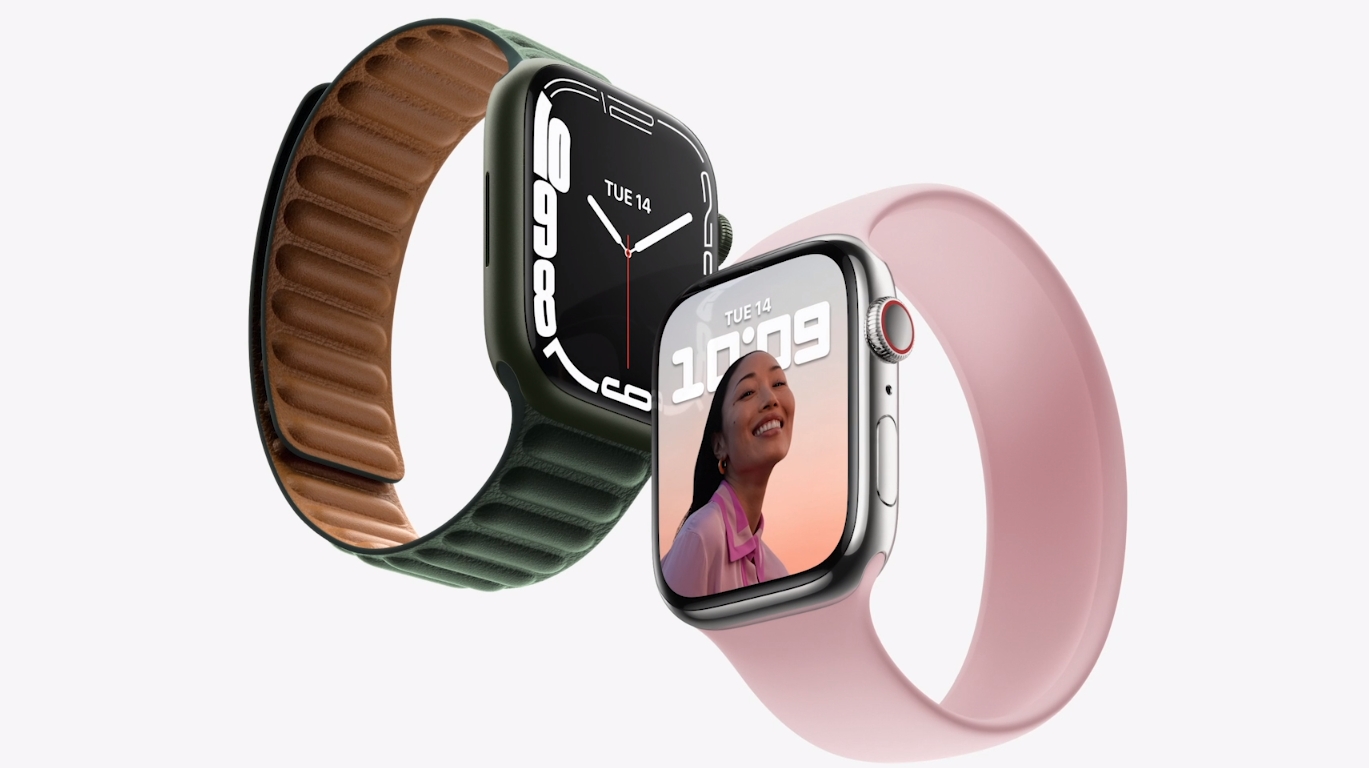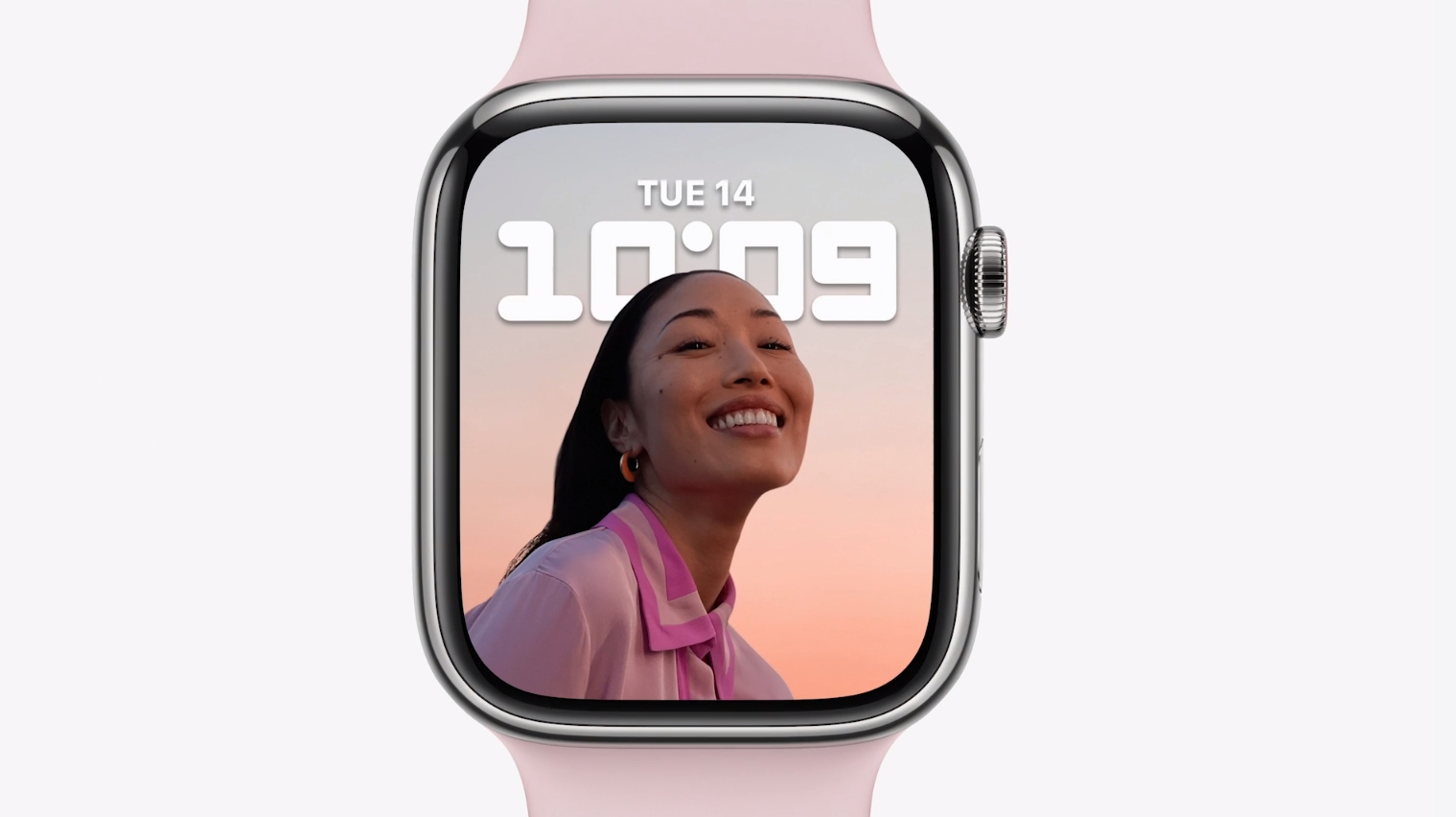The Apple Watch 7 is an incremental update on the Apple Watch 6 , with an almost identical set of core features married to a slightly larg...
The Apple Watch 7 is an incremental update on the Apple Watch 6, with an almost identical set of core features married to a slightly larger display.
So where does this leave Apple’s value-oriented alternative, the Apple Watch SE? Unlike the Apple Watch 6, it’s still available to buy from Apple.
Here’s how these two smartwatches stack up. You might be surprised at our conclusion.
Apple Watch 7 vs Apple Watch SE: price and availability
The Apple Watch 7 went on sale on October 15, 2021. Prices start from $399 / £369 / AU$599 for the non-cellular 41mm model, rising to $429 / £399 / AU$649 for the 45mm model.
As for the 41mm cellular version, that’ll cost you $499 / £469 / AU$749, while the cellular 45mm model costs $529 / £499 / AU$799 – not counting the price of a data plan, of course.
The Apple Watch SE went on sale September 18, 2020. Unlike the Apple Watch 6, however, it’s still on sale. Pricing has remained largely the same, except for a drop for UK users due to currency adjustments.
Prices for the iPhone SE start from $279 / £249 / AU$429 for the 40mm GPS model. Adding LTE to that equation will cost you $329 / £319 / AU$429.
The larger 44mm GPS model costs $309 / £279 / AU499, while the 44mm LTE model costs $359 / £329 / AU$549.
Essentially each Apple Watch 7 will cost you a more than $100 / £100 premium over its Apple Watch SE equivalent. Is that price bump worth it?
Apple Watch 7 vs Apple Watch SE: design and display
Despite the price disparity, the design of the Apple Watch 7 and Apple Watch SE are similar. Apple’s ‘rounded square’ approach holds true of every Apple wearable, after all.
There are two essential differences here. The Apple Watch 7 has a tougher body and a bigger display.
The former comes in the form of an IP6X rating, which makes it dust-resistant, as well as a hardened sapphire crystal glass display that’s more resistant to scuffs and scratches than the Watch SE’s Ion-X strengthened glass. Both devices are water-resistant up to 50 meters, however.
In the latter’s case, the Apple Watch 7 display is 1.9 inches, which is 20% larger than the 1.78-inch Apple Watch SE equivalent. This grants a noticeably clearer view of content, and it also enables Apple to add things like a full keyboard and some more information-dense clock faces.
The Watch 7’s display curves away more than the SE’s. Apple’s new Contour watch takes advantage of this, making the numbers visible from the side.

What you don’t get with the Apple Watch SE that you do with the Watch 7 is an always-on display, which instantly hands a pretty large usability advantage to the newer and more expensive device. It continues to frustrate that Apple didn’t implement this in the Watch SE, as it still has the low-temperature polycrystalline oxide (LTPO) technology that would make it possible.
Despite this larger display, the Apple Watch 7 as a whole is only a little bigger than the Apple Watch SE. It’s exactly as wide, 1mm taller, and a fraction of a millimeter thicker. The smallest Apple Watch 7 weighs 6g more.
There’s also been a millimeter added to both base strap sizes, but there really isn’t much in it overall.
More fundamentally, the Apple Watch 7 comes in aluminum or stainless steel, while the Apple Watch SE is only available in aluminum.
Apple introduced five new colors with the Apple Watch 7: Starlight, Midnight, blue, green, and Product Red. They’re hardly the most showy or exciting colors, but they certainly beat the Apple Watch SE’s meager gold, silver and Space Gray options.
Apple Watch 7 vs Apple Watch SE: fitness and features
The core feature sets of these two smartwatches are similar, with both watches running on WatchOS 8.
They also have a similar array of health-tracking sensors. Both watches support GPS and heart rate monitoring which makes them broadly competitive with most dedicated fitness trackers. They’re not quite as accurate or fully featured as the very best of these, however.
Another shared feature is sleep tracking, though it’s relatively basic in both cases.

Where they really differ in this respect is that the Apple Watch SE lacks the Apple Watch 7’s electrocardiogram (ECG) and blood oxygen (SPO2) facilities. These were introduced in 2020 with the Watch 6, but didn’t find their way into the cheaper Apple Watch SE.
The ECG gives the Watch 7 the ability to read heart rhythm data and detect irregular heartbeats could potentially enable you to head off more serious heart conditions, if that’s a concern.
Of course, one of the biggest health and fitness features Apple has come up with in recent times is the Apple Fitness+ service, which gives you a full on platform of guided video content for your Apple TV, iPad or iPhone. And that’s available regardless of the device you’re using.
Apple Watch 7 vs Apple Watch 6: OS, power and battery
The Apple Watch 7 is powered by Apple’s latest wearable S7 chip, though it’s essentially the same as the S6 before it. This means that it’s only effectively a generation more advanced than the Apple Watch SE’s S5 chip.
Ultimately, you’re unlikely to notice any major performance difference between these two smartwatches. They’re both among the slicker, smoothest runners in the smartwatch field, thanks to Apple’s custom processor expertise and expert optimisation.

You also get a generous 32GB of internal storage with both devices.
Both now run on WatchOS 8, so there’s no difference between the two beyond a few unique watch faces (like the Modular Duo face) that accentuate the Watch 7’s larger display. Features such as the new Portrait Mode photos watch face, handwashing notifications, and Assistive Touch are available to users of both wearables.
Apple claims that both watches can attain 18 hours of battery life. The Apple Watch can stretch beyond that to around 24 hours in our experience, and the Apple Watch SE can stretch even further.
We were able to get up to 36 hours on a single charge with the Watch SE. You can likely thank the lack of an always-on display and those advanced tracking features for this extended stamina.
The Apple Watch 7 hits back with faster charging. Thanks to the use of faster coils and a speedier USB-C charging cable, the Apple Watch 7 can charge from 0% to 100% in a speedy 64 minutes, which is about twice as quickly as the Apple Watch SE.

Takeaway
The Apple Watch 7 is without doubt a superior smartwatch to the Apple Watch SE. It has a larger display that remains active at all times, a wider range of finishes and colors, ostensibly faster performance, and the ability to test with an electrocardiogram (ECG) and track blood oxygen (SPO2).
However, we suspect that these bonus features won’t matter to most potential buyers. Or at least, not enough to warrant a more than $100 / £100 price premium.
If you want the best wearable that money can buy, and a device that will be usable for many years to come, then the Apple Watch 7 is the best money-is-no-object smartwatch around.
If you’re simply looking for a compact, multi-functional smartwatch that grants access to basic fitness tracking and Apple’s unique apps and services – including Apple Fitness+ – then the Apple Watch SE will suit most people better.
- Stock up on the best Apple Watch apps
from TechRadar - All the latest technology news https://ift.tt/y8GbDfSlt
via IFTTT








COMMENTS